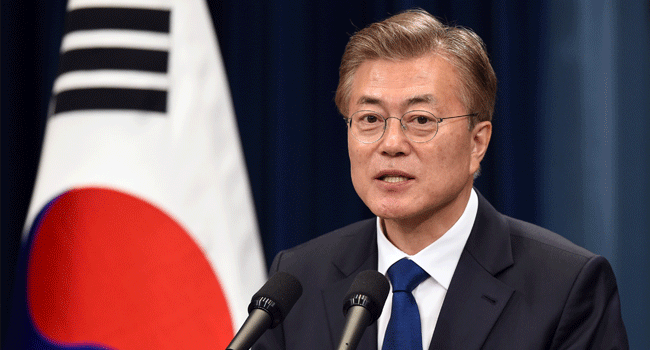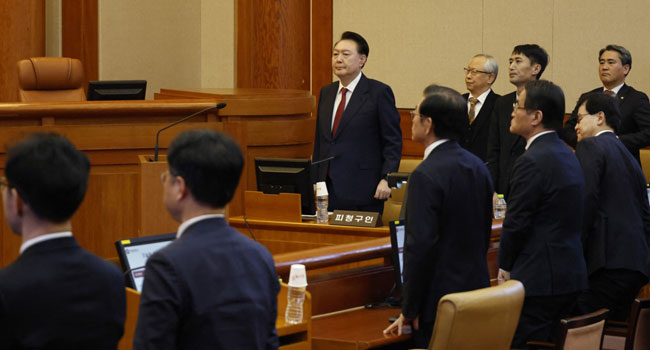
South Korea’s prosecutors said Thursday they have indicted former president Moon Jae-in on corruption charges related to the employment of his son-in-law at an airline.
Moon was “indicted for corruption for receiving 217 million won (USD 150,000) in connection with facilitating the employment of his son-in-law at an airline”, the Jeonju District Prosecutors’ Office said in a statement.
The case adds to the political drama gripping South Korea, which is facing elections on June 3 after Yoon Suk Yeol was stripped of his presidency for imposing martial law briefly.
Moon, who served as president from 2017 to 2022, was known for pursuing engagement with North Korea, including brokering talks between Pyongyang’s leader Kim Jong Un and US President Donald Trump during his first term.
According to prosecutors, Moon’s son-in-law was appointed managing director by low-cost airline Thai Eastar Jet, “despite lacking any relevant experience or qualifications in the airline industry”.
The son-in-law “frequently left his post for extended periods… and did not perform his duties in a manner befitting the position”, they said.
The airline, which was effectively controlled by a former MP from Moon’s party, had given Moon’s son-in-law the job in a bid to win favours from the then president, prosecutors said.
According to prosecutors, any salary and other financial benefits paid by the airline to the son-in-law between 2018 and 2020 “were confirmed as not legitimate salary payments, but bribes intended for the president”.
The son-in-law later divorced Moon’s daughter.

‘Politically motivated’
Moon’s indictment means that two former presidents of South Korea are now in legal jeopardy.
Disgraced ex-president Yoon is facing trial on insurrection charges over his December 3 martial law decree, which lasted only around six hours as it was voted down by opposition MPs.
If convicted, Yoon could be sentenced to life in prison or be given the death penalty — although South Korea has had an unofficial moratorium on executions since 1997.
Yoon was the second South Korean president to be removed from office, and the third to be impeached by parliament.

South Korea’s politics are often marked by score-settling. The only two other living former presidents –- Lee Myung-bak and Park Geun-hye -– were convicted of corruption and served prison terms.
Former president Roh Moo-hyun, for whom Moon served as chief of staff, died by suicide in May 2009 by jumping off a cliff amid a corruption investigation involving his family.
Moon’s party condemned the prosecution Thursday, calling the indictment “an abuse of unchecked prosecutorial power”.
The corruption charge was “nothing more than a politically motivated move aimed at humiliating a former president,” Park Kyung-mee, spokeswoman of Democratic Party, said in a statement.
“So the salary paid to the son-in-law was a bribe to the president? Is this the best logic they could come up with after dragging the case out for four long years?” she added.
AFP
